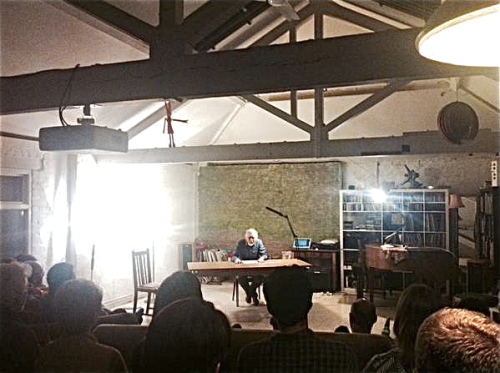orpheus in the underland
There are so many good books around at the moment. Will Eaves’ Murmur, obviously, which won the Wellcome prize a few days ago, a triumph not just for the author but for Charles Boyle’s CBEditions, one of the smallest publishers in Britain. The Dollmaker by Nina Allen, reviewed here. Sandra Newman’s glitteringly imaginative time story, The Heavens. Coming soon: Homing, by Jon Day, a calm, artful meditation on home and returning, navigation and orientation, which, in addition, will leave you knowing everything you always wanted to know about the Columbidae; Will Wiles’s rebarbative Plume (also, in a sense, bird-oriented); Helen Mort’s Black Car Burning, also, in a sense, about home, as the place you structure out of the things you do; and Salt Slow by Julia Armfield, her debut collection.
Then there’s the Underland, which opened its maw this week.
Every time he writes, Robert Macfarlane performs several extraordinarily deft acts of focus, by which he interleaves layer upon layer of landscape and mindscape. At the same time he never fails to give you the sense that the book you are reading has self-assembled from its own imaginary, which is in turn composted and churned from the substance of the world and his relations with it. Even if he only thought about things, and wrote them down, Macfarlane would be a significant, persuasive writer—he has perfect control of the skill, or art, or quality of mind Brian Dillon described in Essaysim. But Macfarlane has been there too, and looked, and this is what he saw; and this is what he did; and this is what emerged from the experience. This is what it means to be a contemporary landscape writer. Macfarlane made the book, you understand, with its cunning millefeuille of themes and imagery, deep human history, cycles of politics, poetry and myth: but you also understand that it developed under its own impetus, out of the deep relations of the things of the world. Or, in the case of Underland, the things under the world: from its deep time geological underpinnings, up through layer after labyrinthine layer of cultural and economic connection, to the shallow scabrous subsurface litter of the things we know and are trying to forget—the things our species is trying to hide and hide from—the things we’re burying as we bury ourselves alive.
“While writing Underland,” he said in the Guardian recently, “I have come to think of claustrophobia as one of the distinctive experiences of the Anthropocene: a sense of time and space running out; of being in the grip of Earth forces triggered by human actions but exceeding human control…” Underland takes us inside that experience, and is a genuinely frightening catabasis as a result. But Macfarlane keeps singing to the end and gets us back into the light.
